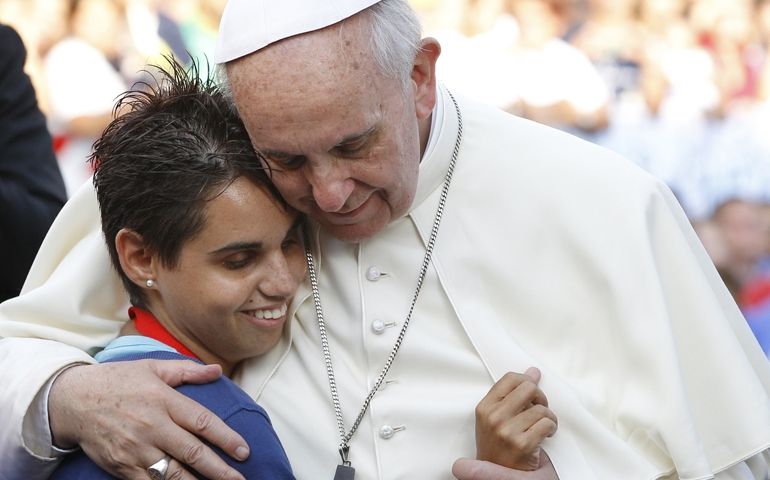On March 18, in a meeting with representatives from the Camillan Charismatic Family of healthcare operators, Pope Francis said that Christianity simply “does not work” without practicing tenderness. He said tenderness is a virtue so little exercised in our charitable “encounters” with the sick, poor and suffering that it “risks being dropped from the dictionary” of our everyday language.
“We must take it up again and put it into practice anew. Christianity without tenderness does not work,” the pope said. “Tenderness is a properly Christian attitude: it is also the very marrow of our encounter with people who suffer,” the pope said.
To be tender (from the Latin “tener” and old French “tendre”) means reaching out, listening and eventually helping others “in gentle, soft way”. Hence, virtuous persons who excel in tenderness develop a “soft touch” for those who are suffering. They naturally, then, demonstrate compassion while delicately addressing problems of the suffering.
In English, we also use the word “tender”, perhaps bizarrely so, in connection with financial and business transactions, as in “to tender bids” for projects and “legal tender” to spend on cash acquisitions.
Is there a way in which the spirit, human virtue and business dealings unite in a unique semantical use of the word “tender”?
Reading some of the more quirky moral-spiritual literature this Lent, I came across analogous expressions of dealing with persons’ dignity in terms of a making a carefully considered “investment” in them. This is to say, in dealing with and eventually helping uplift our neighbors’ lives out of injustice, our moral courage to persevere with and listen to the afflicted as well as to give gentle advice “pays dividends”. What’s more, this charitable interaction becomes a form of “currency”. It affords others who receive just spiritual payment and healing to “pay back” or “pay forward” the tender generosity received empathetically to others who suffer. The so-called “spiritual currency” might even be paid back to the person who originally gave his tender support when it is his time to be the sufferer.
Indeed, though it may seem vulgar to connect transactional and investment terminology to true acts of self-less charity – a theological virtue that requires God’s abundant grace – I am ever the more convinced that there is real value in relating the economic and virtue/spiritual meanings.
For example, if we treat others we help as mere objects of our sympathy, then strictly speaking no charitable interaction occurs between the benefactor and the recipient. It may do good to the other, but it is not the self-less love that is charity. However, if we treat the needy and suffering in a service-orientated capacity – which we find so prevalent in market exchange economies – and in the way morally scrupulous business persons carefully invest their legal tender in worthy protagonists of their cooperative venture, then this economic meaning is much closer to the affective solidarity and tenderness that Pope Francis says is so vital to a loving Christian life.
In the latter example, the poor and suffering are raised to dignified levels of respectful partnership and are truly served by persons who are genuinely concerned about their well-being and improvement. In the former case, the poor are merely used to make ourselves feel good, with our sentiments being gratified in and of themselves.
Pope Francis intelligently realizes Christ is our model for winning the hearts and good will of others, since he is a most tender listener who carefully invests his soft touch in others. The return on the spiritual investment paid off manifold: poor and suffering sinners to whom he listened were eventually converted and became loyal followers of the tender Lamb of God. 2000 years on, Christian believers from all over the world are still paying this “spiritual currency” forward while evangelizing God’s love and winning hearts for Him.
Photo credit (courtesy of Paul Haring/CNS)
